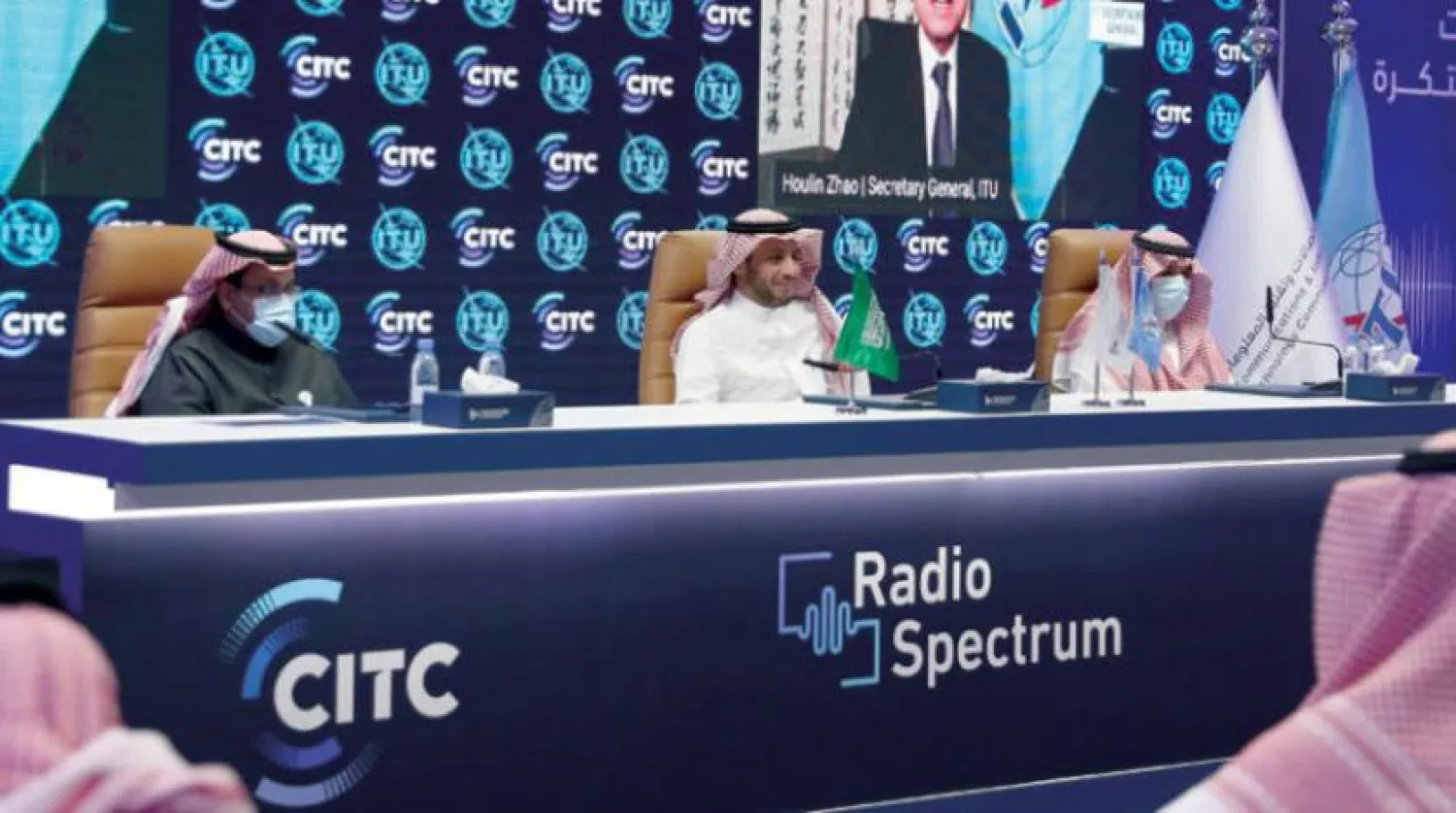Saudi Arabia said Tuesday it will double the radio spectrum by more than 10 times in the next five years, noting that it is currently working on preparing a future roadmap for these uses.
The Communications and Information Technology Commission (CITC) will provide more than 10 gigahertz (GHz) to improve the commercial and innovative use of the Kingdom’s radio spectrum by 2025, according CITC Governor Mohammed al-Tamimi.
“The Saudi telecom regulator is working on setting up a new outlook for commercial and innovative use of radio spectrum,” Tamimi added on the sidelines of the three-day webinar on “Radio Spectrum for International Mobile Telecommunications (IMT)-2020 and beyond: Fostering Commercial and Innovative Use.”
The event, which kicked off on Tuesday, was organized by the CITC in cooperation with the International Telecommunication Union (ITU).
Minister of Communications and Information Technology Abdullah al-Swaha stressed the need for a global standard in spectrum management.
“It is so critical for us to come together as the world’s greatest thinkers and doers in the spectrum field,” he said.
“Digital infrastructure was the backbone for our resilient economies to succeed in a post-COVID world and spectrum is the lifeline,” noted Swah, who is also CITC CEO.
The webinar brought together more than 70 participants representing more than 20 world countries. Speeches were given by senior government officials, companies and international organizations in the field of information technology, including Mario Maniewicz, director of the ITU Radiocommunications Bureau, and Chairman of the Federal Communications Commission Ajit Pai.
ITU Secretary General Houlin Zhao hailed in his opening speech the role played by the CITC in organizing the event, noting that the ITU recognizes the CITC as one of the most developed regulators in the world and Saudi Arabia as one of the Middle East’s largest ICT markets.
CITC Deputy Governor of Radio Spectrum Mohammed Alotaibi told Asharq Al-Awsat on the sidelines of the event that the Kingdom taken steps in recent years to improve radio spectrum management and enable its commercial and innovative use.
These steps aim at benefiting companies providing these services, so that they can improve the speeds and services, especially mobile networks.
He stressed that the radio spectrum is used by various networks and has various uses in several sectors.
The webinar hosted by the Kingdom reflects the significance of its status in the communications and information technology sector.









